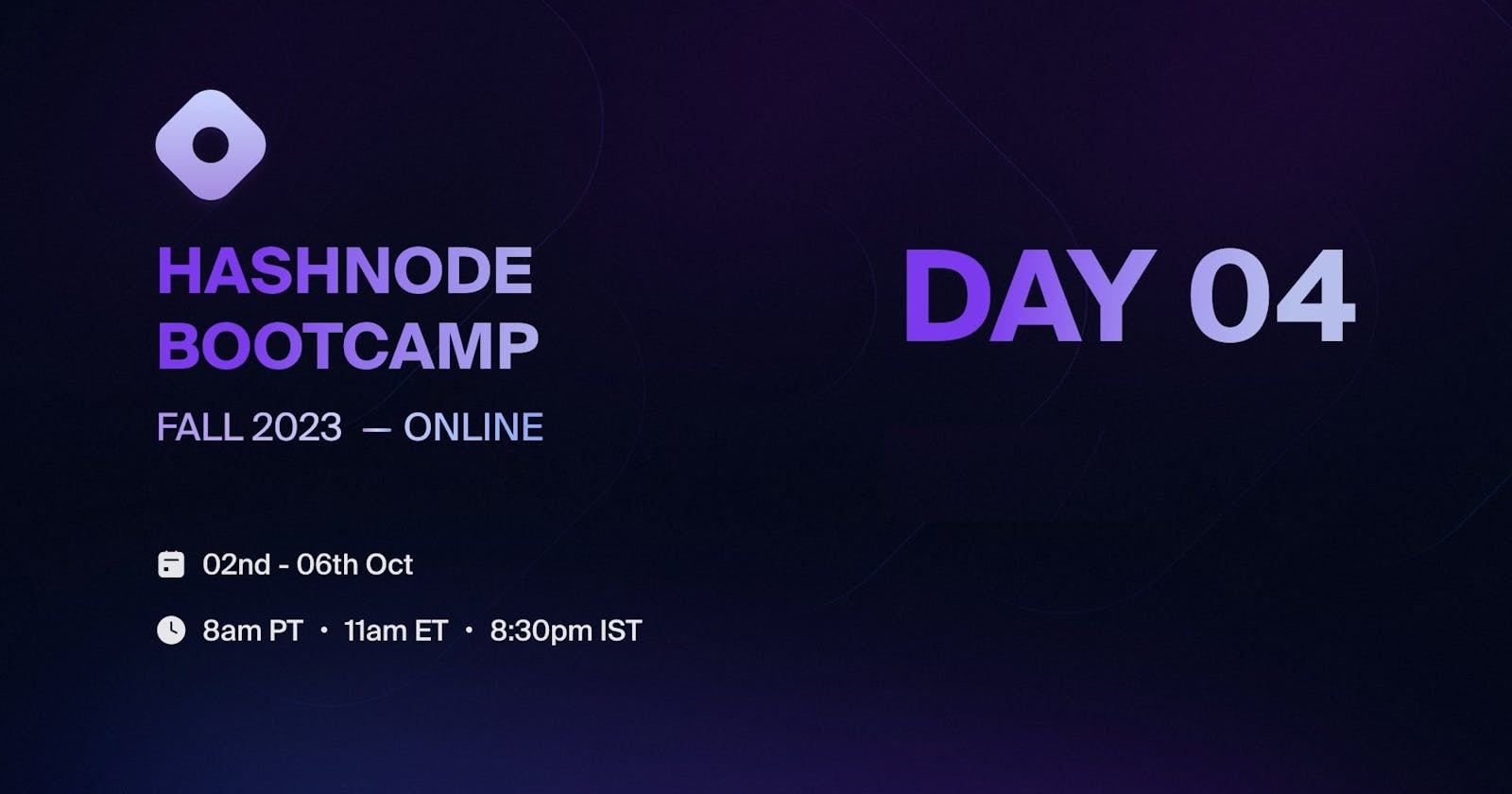Day 4 of the Hashnode Bootcamp was a treasure trove of insights and knowledge, offering a deep dive into various aspects of tech and development. The day kicked off with Kevin Blanco’s enlightening session on creating compelling video content for development communities, followed by Deni Khalikov’s invaluable advice on documenting work to secure a remote job in tech. Tim Okonkwo then took us through the benefits of building in public for developers, and the day concluded with Muzzammil Yasin’s intriguing discussion on leveraging AI as a developer. Each session was packed with practical tips and strategies, making Day 4 a truly enriching experience.
Takeaway from Kevin Blanco’s lecture:
Kevin, who is a developer relations representative at Appsmith, loves to empower developers.
Storytelling is really important for a developer to convey his/her/their message, and a good story structure is the single most important ingredient.
The 3 stages of good storytelling are:
Attention: This is when you say something by which you will gain attention by saying something they will love.
Reflection: It is generally something people will say yes to to keep them engaged.
Transformation: This is when you tell them how they will be able to do what they intend to. Thus their idea transforms into reality.
Kevin then suggested we read the book called "Start with Why" by Simon Sinek.
For creating videos, make sure you have the basic equipment like an external microphone and good lighting. By basic, I do not mean the most expensive that money can buy. But basic equipment with good storytelling is all you need to make an impact.
Takeaway from Deni Khalikov’s lecture:
Deni is a software engineer and dev advocate. His lecture was about documenting your work to get a remote job.
Your Profile: Make sure your profile looks professional. Make it clean and to the point. That's one of the first things others look at.
Your work: To properly document your work, you need to have a structure. It is not just about building in public or spamming on Twitter, but structuring your work in such a way that your future clients and employers find it helpful.
Your community: Once you post stuff on Twitter or your choice of social media, you are likely to meet like-minded people from the community. So you need to bring something of value to the community to get something in return.
Your networking: Having a community presence is not the same as networking. Networking is the process by which you go to people looking for opportunities. Networking is a more professional and mindful practice than building your community.
You: This is the most important point. You are a unique individual. So don't be afraid to show who you are politely and respectfully. There will always be two types of people: people who will look up to you and people who will hate you.
Takeaway from Tim Okonkwo’s lecture:
Tim is a software engineer and dev advocate. He is also the founder of softamplify. His lecture was about building in public.
Building in public: Building in public does not mean you need to take your laptop outside and work in a cafe or something.
It means being transparent about what you are building and being open about both your failures and successes.Misconception:
It is not just about self-promotion. It is about uplifting the community.
You do not need to be an extrovert. It is open to everyone.
It is not open only to experts, but if you are transparent, experts can help you with their opinions.
It does not mean you need to share everything; the sharing part is in your control.
You do not need a big following. It is effective, with a smaller following from the community too.
It is not a shortcut. You need to be consistent.
While building in public, you will be able to determine what a particular market is willing to pay for.
You are more likely to get feedback from the community. Constructive criticism will do wonders for the product you are trying to build.
By being transparent, others will see you as more trustworthy.
Building in public will make you accountable for your actions and, thus, more motivated towards your goal.
Sharing both success and failure will help you relate to other developers and reduce the feeling of imposter syndrome.
It will help you improve your communication skills, which is very important.
Being transparent will grant you access to uncommon opportunities.
Thus, having a structure and plan for building in public makes the process more effective
Takeaway from Muzzammil Yasin’s lecture:
His lecture was about leveraging AI as a developer.
Efficiency: Leveraging the power of AI can automate repetitive tasks and reduce your debugging time.
Accuracy: AI can help you analyze large amounts of data and help you make better data-driven decisions.
Innovation: AI can help you identify patterns and make better predictions. Thus creating a better user experience.
Integrating AI tools with existing systems can be a challenging but fruitful process.
The Hashnode Bootcamp Day 4 provided a wealth of practical knowledge on varied topics to help developers succeed. From storytelling principles for impactful videos to documenting work effectively for remote jobs, the sessions offered tactics to implement right away. The benefits of building in public transparently and leveraging AI illustrated new perspectives.
With its diversity of insights from experienced instructors, Day 4 expanded horizons and sparked ideas for participants to boost their skills and careers. The Bootcamp continues to deliver an invaluable learning experience.
Happy Hacking !!!
